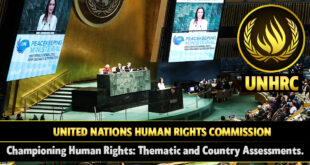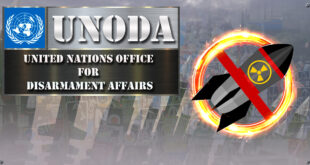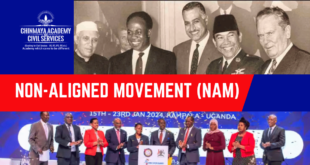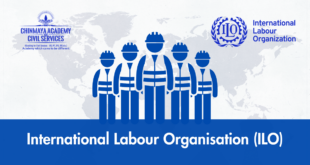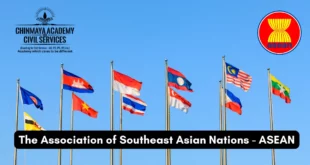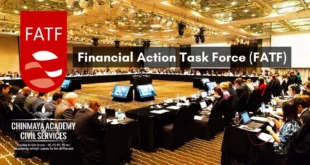Concept: The UNHRC is a subsidiary body of the United Nations General Assembly (UNGA) responsible for promoting and protecting human rights worldwide. It was established in 2006, replacing the United Nations Commission on Human Rights (UNCHR), with the aim of addressing the shortcomings of its predecessor and enhancing the …
Read More »Promoting Global Security and Peace: The Multifaceted Mandate and Initiatives of UNODA
TABLE OF CONTENTS UNODA Objectives and Functions Key Initiatives and Programs I.UNODA: United Nations Office for Disarmament Affairs • Established in 1982, UNODA serves as the principal United Nations office dealing with disarmament matters. • Mandate includes promoting nuclear disarmament, non-proliferation, and arms control, among other disarmament efforts. • Headquartered …
Read More »Non-Aligned Movement (NAM)
The NAM is a forum of 120 countries that are not formally aligned with or against any major power bloc. It’s the second-largest grouping of states after the UN. The founding members are Yugoslavia India Egypt Ghana Indonesia Founded in 1961 during the Cold War, it served as a platform for newly …
Read More »International Labour Organisation (ILO)
ILO World Employment and Social Outlook A report titled “World Employment and Social Outlook – Trends (W International Labour Organisation)” was recently released by the International Labour Organisation (ILO). About: It was designed to represent the idea that social justice must be the foundation of any long-lasting, global peace when …
Read More »COP28: The 2023 UN Climate Change Conference
What is COP The way the world organises its collective response to the global challenge of climate change is through Conferences of the Parties (COPs). At the 1992 Rio de Janeiro Earth Summit, world leaders came together to establish the United Nations Framework Convention on Climate Change (UNFCCC). In order …
Read More »ASEAN
The Association of Southeast Asian Nations, or ASEAN, was established in 1967 with the signing of the ASEAN Declaration (Bangkok Declaration) by Indonesia, Malaysia, Philippines, Singapore and Thailand. The motto of ASEAN is “One Vision, One Identity, One Community”. Its secretariat is situated in Jakarta, Indonesia. Member Nations Indonesia Malaysia …
Read More »Financial Action Task Force
The Financial Action Task Force (FATF) is an intergovernmental body established in 1989 based in Paris. It originally included the G7 countries, the European Commission and eight other countries. Today, it comprises of 39 member countries, 2 observer jurisdictions and 9 FATF-Style Regional Bodies. It acts as global money laundering …
Read More »Human Rights during War
Human Rights during the war Most of the gravest human rights violations are committed during war including the use of rape and starvation as a weapon of war, recruiting children to serve on the frontlines, launching direct attacks on civilians, etc. Some of the most serious crimes under international law …
Read More »MISSILE CONTROL REGIMES
India is among a select group of seven nations that possess intercontinental ballistic missiles (ICBMs) and is one of just four countries that boast anti-ballistic missile systems. This places India in an exclusive category of nations that have developed advanced missile capabilities capable of long-range targeting and defence against incoming …
Read More »BRICS is a platform for Global South
Syllabus: International organizations Why in NEWS The BRICS summit will be held at Johannesburg, South Africa. The 15th BRICS summit is the first in-person meet since 2019 and the COVID-19 pandemic Agenda BRICS has been pursuing a strong cooperation agenda across various sectors. We value that BRICS has become a …
Read More » Chinmaya IAS Academy – Current Affairs Chinmaya IAS Academy – Current Affairs
Chinmaya IAS Academy – Current Affairs Chinmaya IAS Academy – Current Affairs
